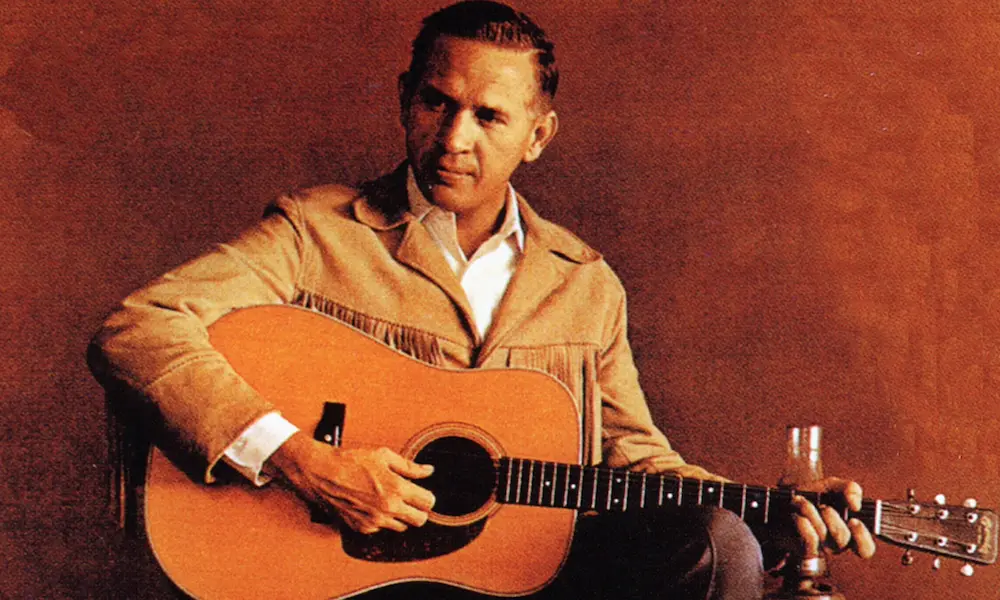
A short, bittersweet snapshot — “Blue Love” is a tiny, aching country vignette that catches Buck Owens at the very beginning of his career, sounding like a memory folded into one breath.
When you press play on “Blue Love,” you hear the young voice of Buck Owens before the Buckaroos and before the honky-tonk bright lights — a concise, earnest country song that sits on his very first La Brea debut LP Buck Owens (1960). What makes the track quietly fascinating is twofold: its brevity — barely over a minute on some collections — and the small, unusual credit behind the song. Unlike most of the early set, where Owens penned the material himself, “Blue Love” is credited to Melba Rocha, a rare outside-writer appearance in his pre-Capitol catalog.
For an older listener who remembers the scent of cigarette smoke in a dance hall and the steady shuffle of a jukebox, “Blue Love” reads like a postcard from a simpler moment: spare instrumentation, a tight vocal performance, and lyrics that don’t try to sweep you away so much as leave you with one clear image — loneliness, regret, or the soft ache of lost romance captured in one line. That economical songwriting, the willingness to say as much as possible with as little as possible, is the very texture that endears Buck to a generation who loved country music that spoke plainly. The song’s short runtime forces the narrator’s feeling to be distilled; there’s no chorus to get lost in, no guitar solo to distract — only the human voice delivering the hurt and the melody carrying it home.
Historically the track belongs to the year when Buck was still finding his footing on record, before Capitol would turn him into a national force and a progenitor of the Bakersfield sound that would later define him. That later persona — rough Telecaster leads, sharp rhythms, and a voice that could be both playful and world-weary — is foreshadowed here in miniature. For collectors and completists “Blue Love” keeps reappearing on reissues and compilations, sometimes under different packaging, sometimes as a bonus curiosum that points back to Owens’s earliest sessions.
What does the song mean to those who lived through the heyday of country radio? It’s the kind of tune you play on an afternoon when the light slants gold across the kitchen table and you’re suddenly struck by the small, accumulated losses that make old songs feel like company. “Blue Love” is not theatrical heartbreak; it’s an economy of sorrow — one line becomes an ocean if you let it. In Buck’s voice you can hear both the stubborn pride of a man who will someday sing about standing tall in a honky-tonk and the fragile tenderness of a boy who knows what it is to be blue.
Music historians and reissue producers have treated the song kindly: it appears on pre-Capitol compilations such as Bound for Bakersfield and on later themed collections that gather those early, shorter pieces into a single listenable thread. These reissues help younger listeners and new generations discover the sketch-like quality of Owens’s formative recordings and the oddities — like Melba Rocha’s authorship — that make catalog digging rewarding.
If you are an older fan, “Blue Love” is likely to do something very small but very real: it will take you back. Not to a specific bar or a single night, but to the sensation of youthful longing and the sound of a singer beginning to find his voice. In a career of stadium hits and No.1 singles that would follow, this little track remains a delicate first note — modest, plainspoken, and heartful. It’s the sort of song that sits quietly on a shelf of memories and, when rediscovered, makes everything else feel a little more honest.